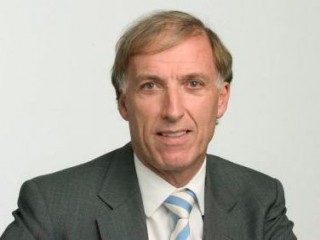
Crispin Davis biography
Date of birth : 1949-03-19
Date of death : -
Birthplace : England
Nationality : British
Category : Science and Technology
Last modified : 2011-09-15
Credited as : media manager, executive of Reed Elsevier Group,
0 votes so far
Crispin Davis management structure and has steadily increased profit margins. Davis has also managed to position Reed Elsevier as one of the Internet's top revenuemakers, a significant factor in the company's consistent outperformance of other companies in the media sector, most of which has been mired in recession over the last few years.
Davis's strategy for the future of Reed Elsevier is built on innovation. In an interview with Raymond Snoddy of London, England's Times, Davis said, "We are not just waiting for the economy to recover. Let's assume there is no recovery. How do we get faster topline growth? We are emphasizing innovation much more." He told Snoddy that each division at Reed Elsevier has been charged with bringing to market each year a set number of new initiatives in order to keep growing company revenue: "What I am looking for is a constant stream of new initiatives." Division managers have been instructed to closely examine the activity of their customers in order to identify new services that might prove useful.
Born on March 19, 1949, Davis, the son of an attorney, grew up in the English county of Kent, southeast of London. A healthy sibling rivalry pitted Davis against his three brothers, all of whom have gone on to make successful lives for themselves. Opting for careers in the business world were Davis and his brother, Ian, who on July 1, 2003, took over as the new managing director of McKinsey & Company, the international management consulting organization. Their two brothers followed their father into the practice of law. One maintains law offices in the City of London, the milesquare business heart of the city, while the other serves as a judge. Davis studied at Charterhouse, an exclusive boarding school in nearby Sussex.
After completing his studies at Oxford University's Oriel College, Davis in 1970 began his business career as an assistant brand manager for Procter & Gamble. During his two decades with P&G, he served as United Kingdom marketing director, managing director of German operations, and president of the company's North American Foods Division. In 1990 Davis left P&G to take over as managing director of European operations for United Distillers (UD), the subsidiary of Guinness PLC responsible for the brewer's hard spirits sales. In mid1992 Davis was named managing director of UD, but he resigned 15 months later after clashing with Guinness chairman Tony Greener over the direction the company should take. During this period Davis also served as a director on the Guinness board.
Somewhat chastened by his experience at UD, Davis did a good deal of soul searching. As he told Neil Bennett of the Sunday Telegraph, "It was the first time I had failed at something, but you learn more from your failures than from your successes. It made me think what I would have done differently. I would have put much greater emphasis on building trust in me within the organization. Here I was, going into a company that had been extremely successful and saying, 'This is how we should do things.' A lot of people were somewhere between skeptical and hostile. I should have spent more time building their trust."
Davis entertained a number of offersincluding executive posts with both PepsiCo and Fisonsbut in the end decided to accept the challenge of pulling oncepowerful advertising agency Aegis Group PLC back from the brink of bankruptcy. He signed on as Aegis chief executive officer in 1994, and under his direction the company's market capitalization grew from £180 million to more than £2 billion. But, mindful of his missteps at UD, he took a radically different approach at Aegis. Rather than going off on his own to develop a management plan, as he had done at UD, Davis called upon the entire Aegis team to help him come up with a strategy for turning the company around. It made all the difference in the world, he told Bennett. "They owned the plan."
The wonders worked by Davis at Aegis did not go unnoticed. Shortly after Morris Tabaksblat, former chairman of Unilever, hired on as Reed Elsevier's new chairman in 1999, he brought in Davis as the company's sole chief executive. For his part, Davis wasted no time in getting things turned around. As one of his first moves, he cleaned house at the senior management level, replacing eleven of the company's top 12 executives and cutting headoffice personnel by 40 percent. In its first full three fiscal years under Davis's direction, Reed Elsevier steadily improved its net profit margin: from just under one percent in fiscal 2000 to 3.6 percent in fiscal 2002.
In a June of 2002 interview with BusinessWeek 's Diane Brady, Davis discussed his strategy for the company: "The most fundamental decision was to focus on the four core businessesscience, legal, businesstobusiness, and education. At the time, it was thought we should break the company up, but I thought they were all great assets we could grow. There were two gaps: medical publishing and U.S.schools education. Harcourt was the ideal acquisition that filled the gap perfectly."
Another key to Reed Elsevier's success under Davis has been the company's decision to sharply increase its investments in the Internet, moving an everlarger share of its businesses online. In announcing the company's Internet strategy, Davis told Paula J. Hane of Information Today : "Reed Elsevier has powerful and valuable assets: leading brands and market positions, highquality and indepth content, scale, professional people, and financial strength. Coupled with the exciting opportunities opened up to us by the Internet, this represents a strong platform for growth. We are determined to build aggressively on this with a new management team and new strategy in place."
















